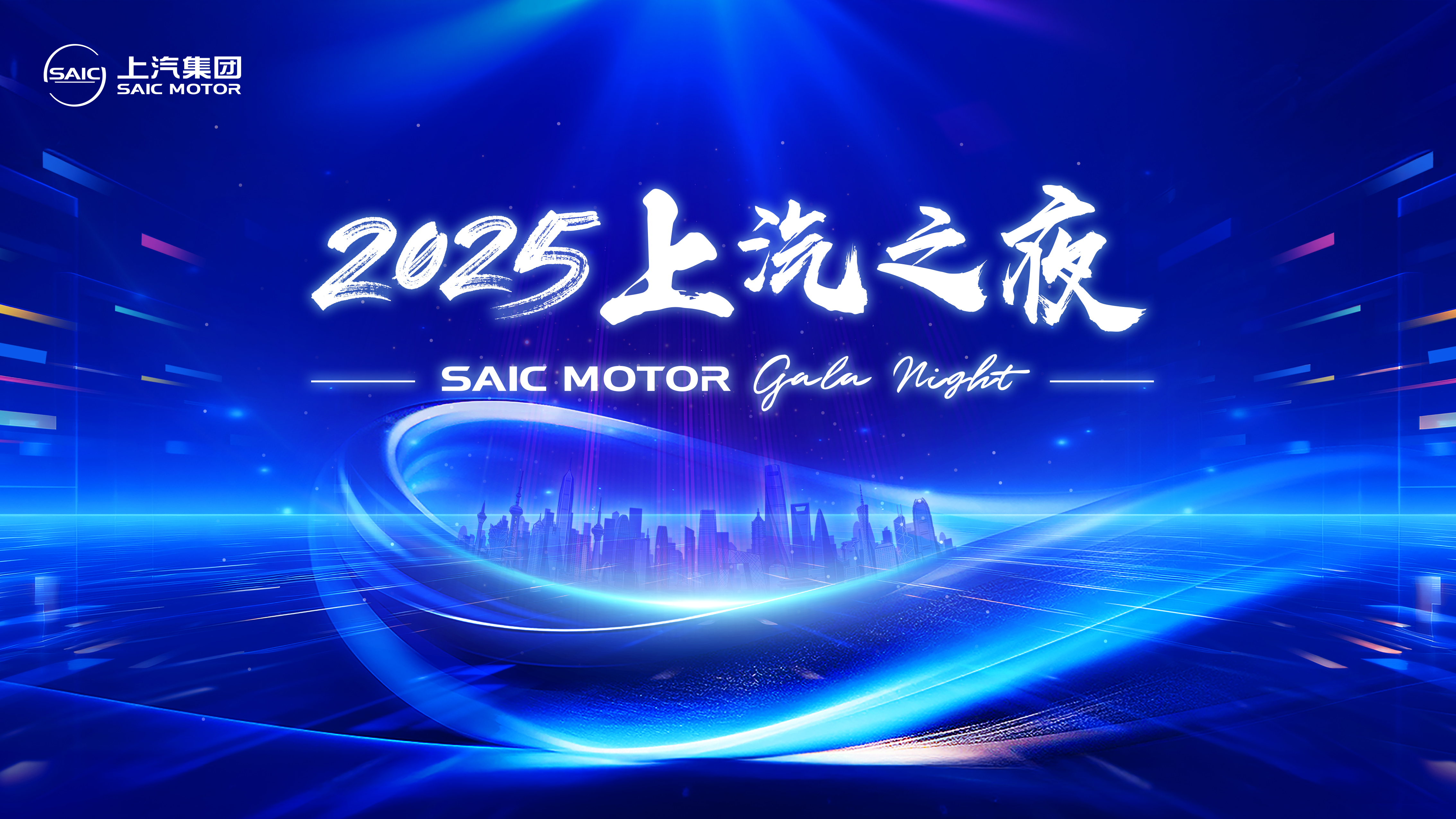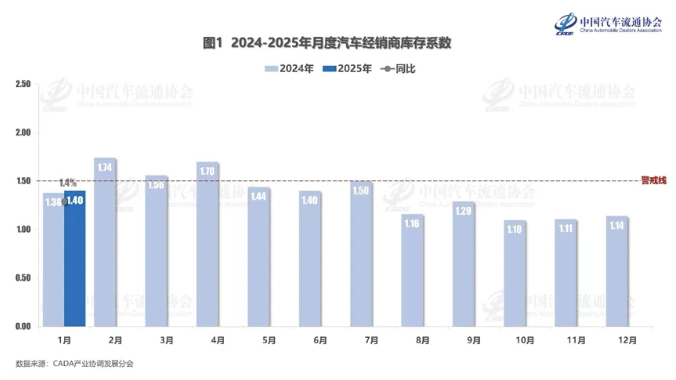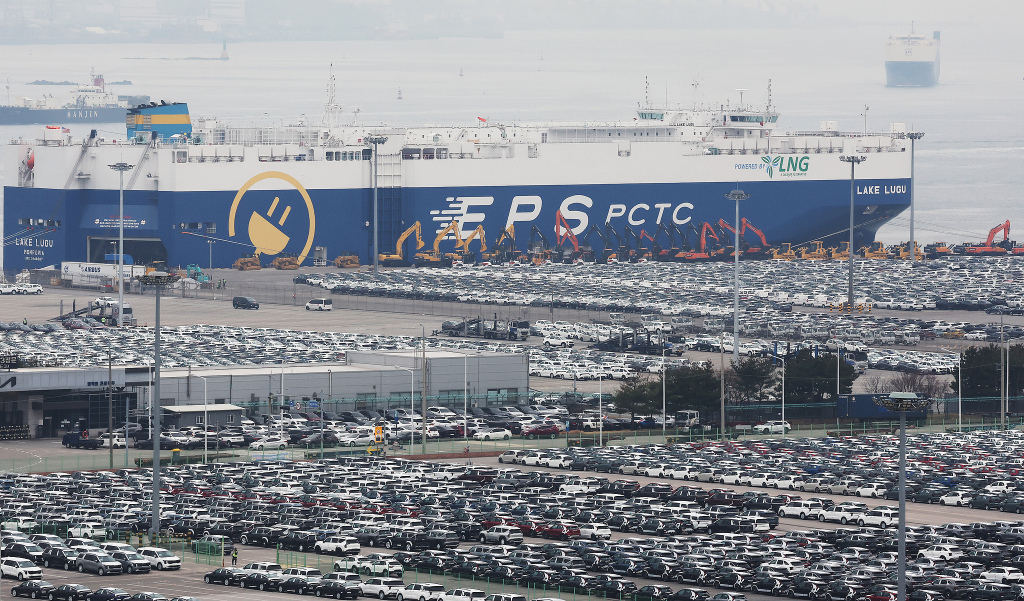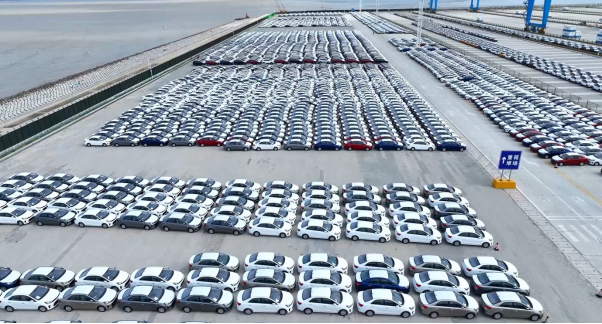
As the world's automotive industry is rapidly moving towards the "new four modernizations" of electrification, networking, intelligence and sharing, joint venture automakers in China are also facing a new survival situation. How to find a survival model that suits them in a constantly changing market environment has become a difficult problem facing all joint venture automakers. However, Yueda Kia, which has been deeply involved in the Chinese market for more than 20 years, has delivered an excellent answer to localization with a cumulative production and sales of 6.5 million units, exports covering 76 countries, and a sales growth of 49.2% in 2024.
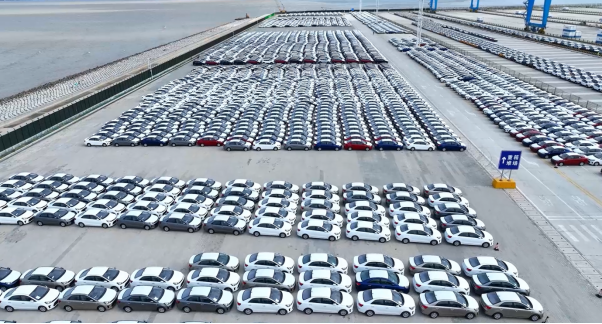
In the first quarter of 2025, Yueda Kia produced 55,790 vehicles, a year-on-year increase of 21.8%, and sold 56,552 vehicles, a year-on-year increase of 13%, further maintaining the development pattern of "booming production and sales" and strong growth momentum.
From the "intelligent manufacturing revolution" of Yancheng's smart factory to the technological breakthrough of "oil-electric dual drive", from the reconstruction of the channel ecology to the innovation of social responsibility, this joint venture brand that has been rooted in China for 23 years is writing a benchmark case for the transformation and upgrading of foreign-funded auto companies with its strategic determination of "in China, for China". Its exploration path provides a vivid annotation for how multinational companies can achieve "long-term success" in the Chinese market.
Reshaping global automotive manufacturing standards with intelligent manufacturing revolution
In the wave of intelligent transformation of the global automotive industry, Yueda Kia Yancheng 4.0 Smart Factory is setting a new benchmark for intelligent manufacturing with revolutionary innovation and redefining automobile production efficiency with an intelligent manufacturing system. This "lighthouse factory" certified by Industry 4.0 has an automation rate of up to 75% in the stamping workshop, and the efficiency of the fully automatic production mode is in the leading position in the industry; the welding workshop has an automation rate of up to 100%, with 558 robots of various types, and a welded white body can be produced every 36 seconds; 26 gluing robots and 71 mid-surface coating robots work simultaneously in the painting process, which can achieve perfect painting quality and effect; the final assembly line can achieve 100% accuracy in vehicle installation torque, ensuring that every assembled vehicle can meet strict quality requirements and achieve dual guarantees of quality control and efficiency.
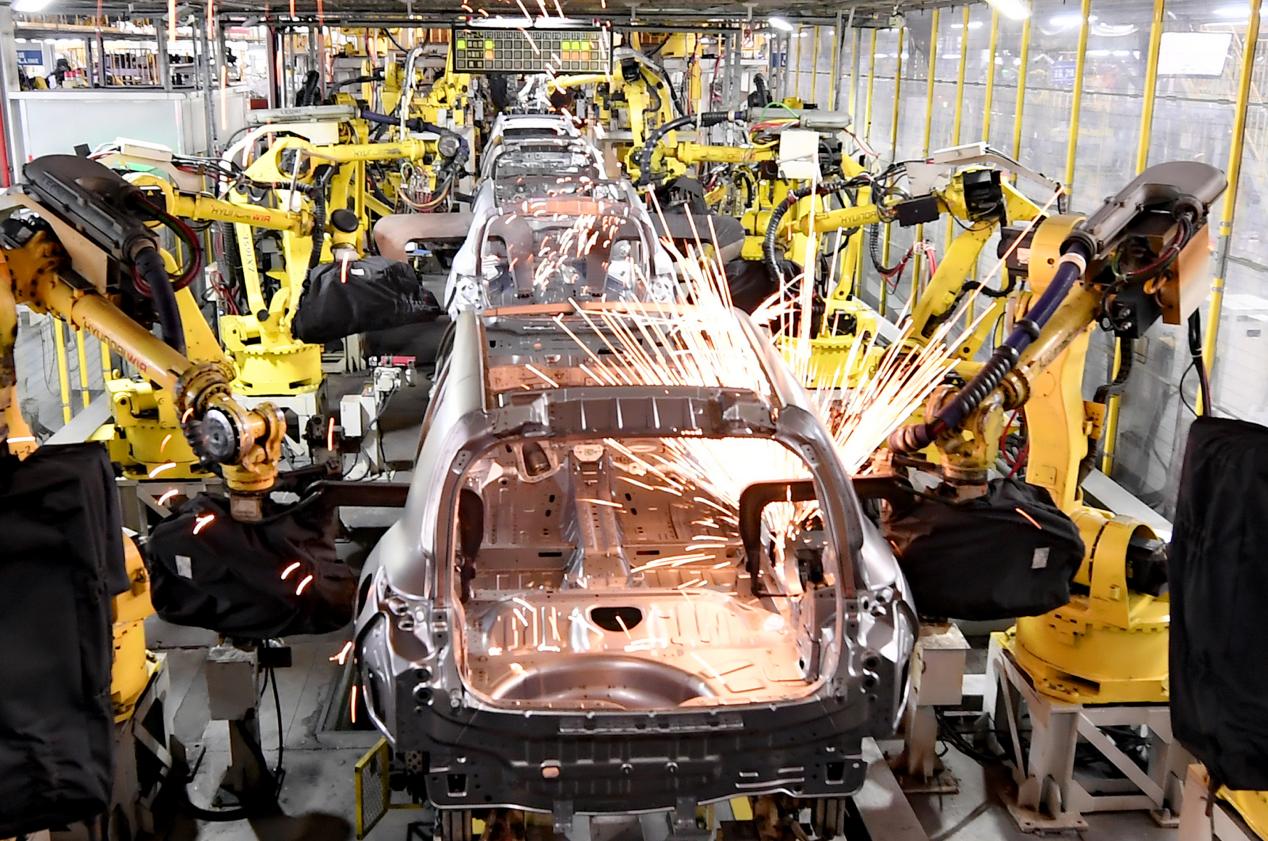
In terms of quality control, Kia's original TFT (Task Force Team) quality management method integrates various excellent quality management method systems from the United States, Germany, Japan, etc., and conducts targeted quality improvements by setting up various TFT teams (wind evaluation TFT, odor evaluation TFT, seat evaluation TFT, etc.); at the same time, it establishes targeted rapid response teams to achieve rapid response and continuous improvement of quality issues, and establishes statistical data models to implement monitoring to strictly prevent the secondary occurrence of quality problems.
On the other hand, the global quality management system (GQMS) and manufacturing execution system (MES) introduced by the Yancheng plant have improved production efficiency while reducing energy consumption. This efficiency leap does not rely solely on hardware upgrades, but optimizes production rhythm through data modeling, bringing industrial engineering principles to the extreme. For example, the automated die change system in the stamping workshop can compress the die adjustment time to 3 minutes. The superposition effect of this "micro-innovation" is reshaping the underlying logic of automobile manufacturing.
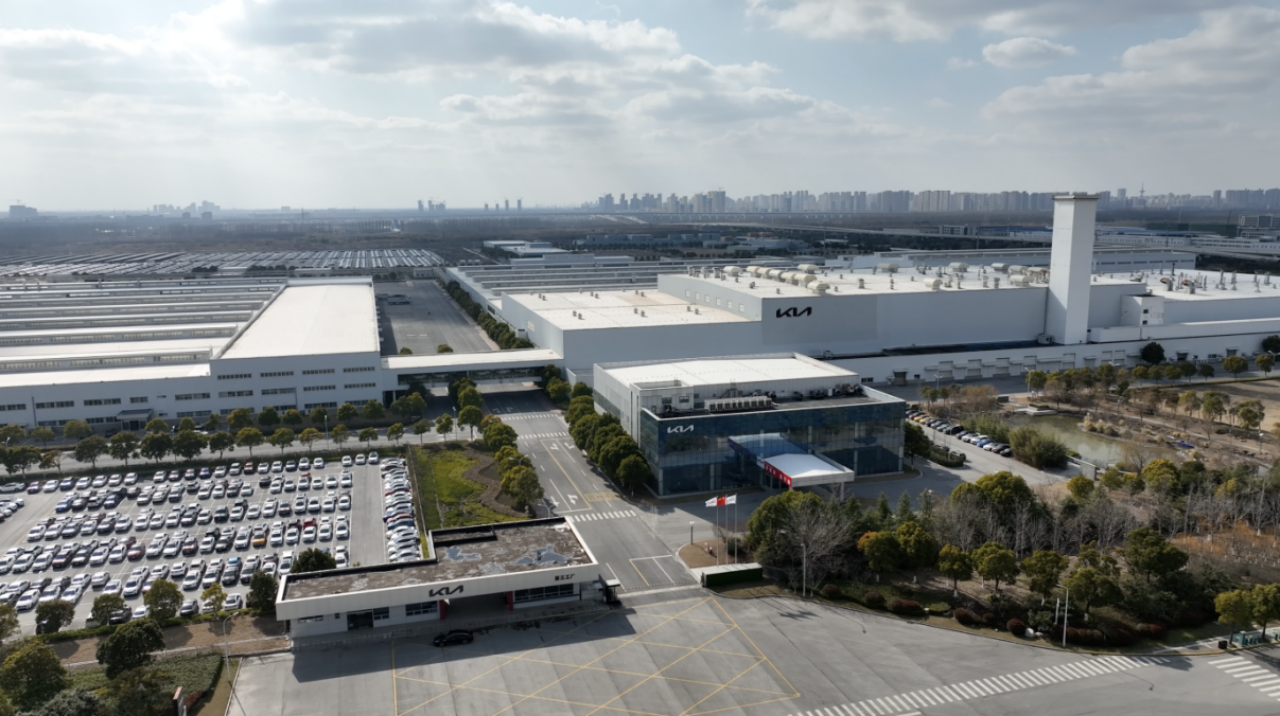
As a representative factory of Industry 4.0, the Yancheng factory is at the forefront of the industry in terms of green manufacturing. In terms of green and sustainable development, the factory pioneered the use of photovoltaic carports to reduce carbon emissions. It is reported that this photovoltaic carport with a total investment of 187 million yuan can generate 44.5 million kilowatt-hours of electricity annually, which is equivalent to reducing standard coal consumption by 4,000 tons and reducing carbon dioxide emissions by more than 10,000 tons. With practical actions, it helps promote China's "dual carbon" strategy and practice a green, environmentally friendly and sustainable smart manufacturing revolution.
This modern factory, which integrates "intelligent manufacturing efficiency, quality revolution, and green practice", has proved through its practice that intelligent manufacturing can improve production efficiency, upgrade quality control, and implement green sustainable concepts. The Yancheng factory is setting a new benchmark for global automobile manufacturing with the new paradigm of Chinese intelligent manufacturing, and injecting surging momentum into the evolution of the global automobile industry.
Breaking through with technology, combining oil, electricity and hybrid to solve transformation problems
When the industry was anxious about the transformation to electrification and the future of fuel vehicles, Yueda Kia did not hesitate too much and chose to carve out a breakthrough path with three parallel tracks of oil, electricity and hybrid in the Chinese market to break the anxiety about electrification.
In the field of fuel vehicles, Kia has reshaped the value benchmark with technological iteration. The 2025 K5 is equipped with the fourth-generation CVVD technology, which reduces the fuel consumption under WLTC conditions to 5.6L/100km, and with a starting price of 110,000 yuan, it builds a "technological equality" moat. The new K3 special edition forms a gradient matrix with the "price-performance king" Sonai, and continues to release the evolutionary potential of fuel vehicles in the 100,000-200,000 yuan market.
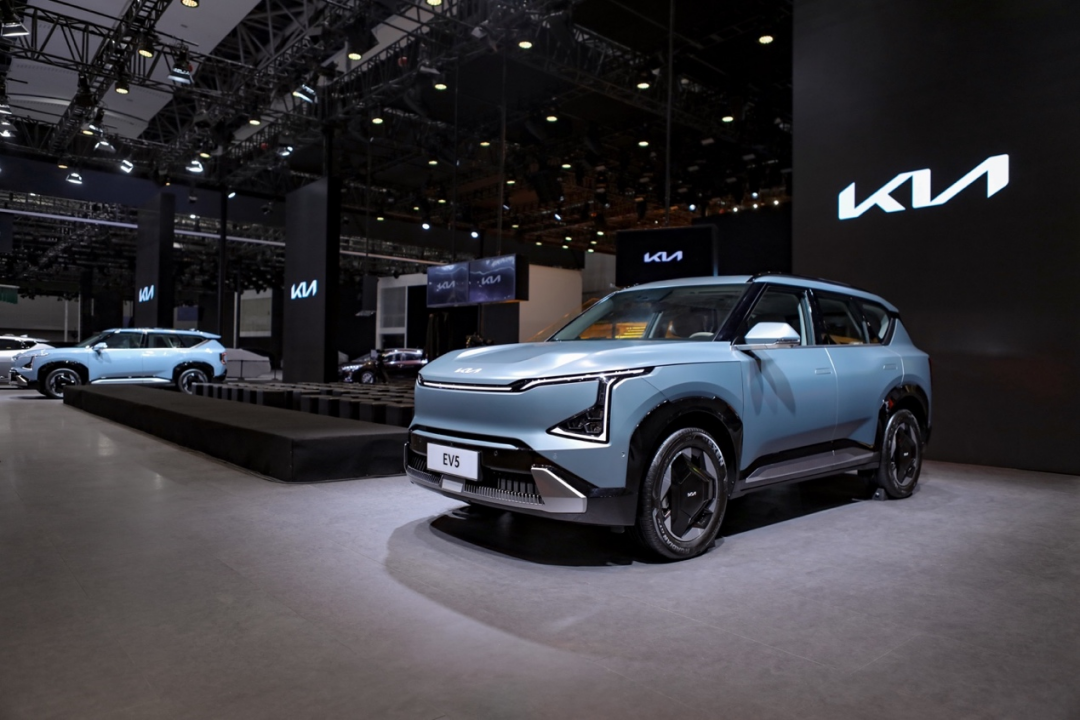
As a game-changer in the pure electric track, EV5 is a strategic carrier for global layout. This model, built on the E-GMP platform and the first to be produced in China and launched globally, embodies the wisdom of 400 local engineers and breaks the mileage anxiety with an ultra-long range of 720km. The 720 Light version, which starts at 174,800 yuan, leverages the sinking market with the "same price for oil and electricity" strategy. What is more noteworthy is that this model is exported to global mainstream markets such as Australia and New Zealand. Its strong product strength has won the recognition and trust of global consumers, and the Yancheng factory is also becoming the core node of Kia's global electrification supply chain. At the same time, as a 23-year partner of the Australian Open, EV5 also serves as the official car for the 2025 event. Every EV5 that drives out of the Yancheng base carries the dual output of technical parameters and brand value.
In the field of hybrid technology, Kia's TMED system demonstrates pragmatic wisdom with its innovative multi-gear architecture. The 5.6L fuel consumption under WLTC conditions takes into account both fuel economy and endurance, accurately matching the current status of charging infrastructure in third- and fourth-tier cities. This "transitional solution" based on real market needs provides a flexible buffer space for electrification transformation.
In fact, behind the "oil and electricity" strategy and multiple product matrix is Yueda Kia's accurate insight into the reality of China's automobile consumption stratification, and also the unique survival wisdom of a joint venture automaker in the Chinese market. Yueda Kia is building its own safety margin with its full-domain product strength, using fuel vehicles to maintain the basic market, hybrid vehicles to fill the transition zone, and electric vehicles to open up new growth. The flexible production capacity of Yancheng 4.0 smart factory is transforming this strategic concept into a reality that can be mass-produced. At a time when the global automotive industry is being restructured, this innovative path of "China R&D, global empowerment" may provide a new model for the transformation of multinational automakers.
Establishing ourselves with quality, from channel sinking to responsibility symbiosis
As automobile retail enters the era of "touch point reconstruction", Yueda Kia is reshaping its service network with "lightweight + professionalization". In terms of service ecosystem construction, Yueda Kia has reached strategic cooperation with influential large dealer groups in the industry, such as Shanghai Zhixing, Sime Darby, Jinlong, Xinhanma, Shanghai Yueda Zhixing, United Crown, and Blue Pool Group, and has built a dense dealer store network in many mainstream cities to provide consumers with convenient car viewing and car purchasing services. At the same time, Yueda Kia has carried out strategic cooperation with JD Auto Care and Tmall Auto Care. With Yueda Kia's unified standardized maintenance and repair operating specifications and the quality assurance of original accessories, it will extend high-quality after-sales services to more regions across the country, so that car owners can enjoy reliable after-sales guarantees no matter where they are.
In addition, Yueda Kia has also opened up the entire car-use chain of "see-buy-use-maintain" through the Kia App, and even includes "one-stop services" for the entire life cycle of car life, such as social and life services. This innovative service system helped the brand rank second among joint venture brands with 777 points in the JDPower after-sales service satisfaction list, and also won industry recognition in the China Automotive Quality Award-After-sales Service Award. Through the digital transformation of the service network, the strategic transformation from "selling products" to "building an ecosystem" has been completed.
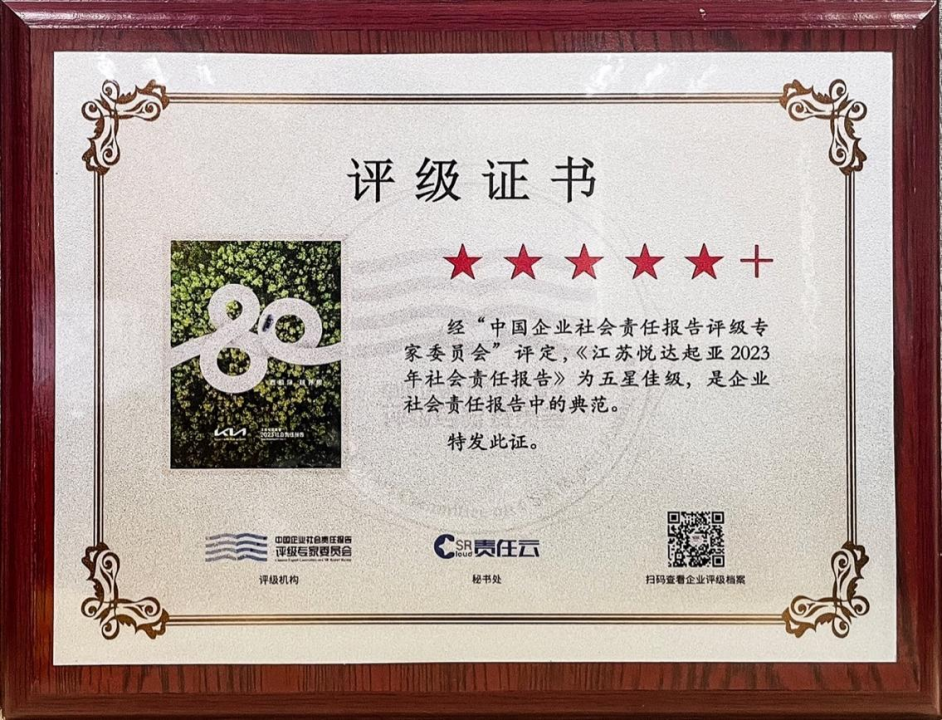
In terms of corporate responsibility, Kia is also evolving. The "Kia Home" public welfare project, which has lasted for 15 years, has built a public welfare system including Kia Home, Hope Primary School, school-enterprise cooperation and other projects, with a total investment of more than 110 million yuan. Over the past decade, it has spread across six provinces including Jiangsu and Sichuan, and has helped build 166 houses, 1 college student entrepreneurship park, 1 villager activity center, and improved the environment of 4 primary schools. In 2022, Yueda Kia actively responded to the call of national policies, moving from "poverty alleviation" to "encouraging college students to start businesses", transforming the college student entrepreneurship park, and promoting school-enterprise cooperation. This practice of integrating ESG into strategy has enabled it to win the five-star responsibility evaluation of the Chinese Academy of Social Sciences for four consecutive years, and it has also won the runner-up in the "2023 ESG Pioneer Index Top 20" among auto companies.
It is worth noting that Yueda Kia is weaving channel innovation and social responsibility into a value network. This three-dimensional layout guided by social responsibility practices the synchronous development of the company's commercial success and social value. When the competition among auto companies enters the stage of "system strength", Yueda Kia's dual-line evolution strategy may provide an innovative model for sustainable growth for the industry.
Conclusion
"In China, for China", Yueda Kia is not just shouting slogans, but has actually transformed it into a quantifiable strategic system. From Yueda Kia's transformation practice, it is not difficult to find that for a joint venture brand to achieve localized transformation, the essence lies in the deep integration of global technological heritage with local market demand.
Yueda Kia's methodology in intelligent manufacturing, technology and quality not only provides a roadmap for the industry's transformation and upgrading, but also confirms a truth - in the competition in the Chinese market, only by elevating localization to a strategic belief can we transcend industrial cycles and achieve true long-term prosperity.
